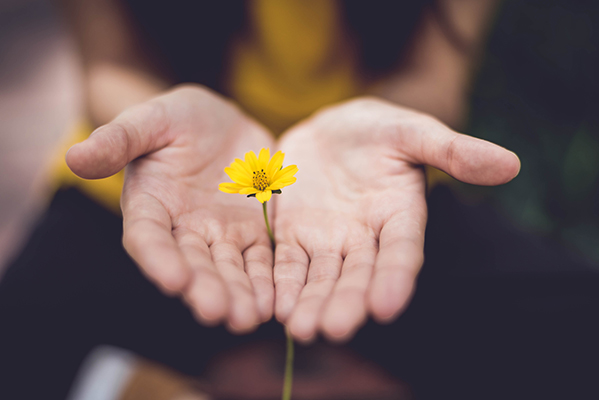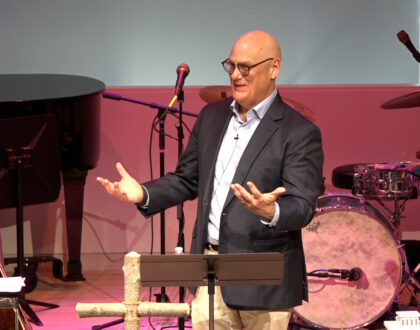Healing Words for Troubled Times

In this age of moral outrage, polarization, and contempt, how can we strive to live a life of humility that seeks to heal deep pain and division? How can we heed Micah’s timeless words to “do justice, love kindness, and walk humbly with God?” How can we keep from developing an overly exalted opinion of ourselves in a culture continuously marked by argument, protest, finger-pointing, and self-righteousness?
Former Roxbury Latin headmaster Tony Jarvis once gave a powerful homily in which he identified three meaningful phrases we should all say more often.
First, we should never be afraid to say, “I’M WRONG.” O how we hate to say those words. We feel humiliated, ashamed, embarrassed, weak, and vulnerable. But being able to admit when we are wrong in life is one of the most important things that we can ever do.
In 2010, Kathryn Shulz published a book titled “On Being Wrong: Adventures in the Margin of Error.” Drew Faust, former President of Harvard University said that it’s the one book she would recommend to her students. Schulz says, “To err is to wander and wandering is the way we discover the world and lost in thought it is also the way we discover ourselves. Being right might be gratifying but in the end, it is static a mere statement. Being wrong is hard and humbling and sometimes even dangerous but in the end, it is a journey and a story.”
Too many people in this culture think they are never wrong. How will we ever learn anything in life if we are always right? Human beings are incapable of always being right. Nobody enjoys being around somebody who thinks that they are always right. Jarvis says, “How hard it is to say, ‘I was wrong.’ How tempting it is to make artful excuses, to pass the buck to someone else, or to some force beyond our control. How tempting it is to lie, and obfuscate, and evade. How terribly hard it is to face up and say, ‘I’m wrong’.”
Secondly, we should learn to say, “I’M SORRY.” I’m sorry for hurting you. I’m sorry for being cruel to you. I’m sorry for not understanding your deep pain. I’m sorry for not being there to help you. I’m sorry for not listening to you. Saying “I’m sorry” shows strength and not weakness. We all make mistakes. We all overreact. We all treat people badly from time to time. We all do and say things that we regret.
Healthy relationships are impossible in life if we are not willing to say we are sorry. Vulnerability and trust go hand in hand. Love means saying “I’m sorry” more often and truly meaning it. Marriages could be stronger if we would apologize more often. Business relationships could be better. Friendships could be closer. There is something profound in learning to say “I ‘m sorry,” even if we don’t completely understand what we did to hurt somebody.
Third, we should all learn to say “THANK YOU” more often. If COVID-19 has taught us anything, it’s how many basic things in life we take for granted – gatherings, connections, celebrations, embrace. Jarvis says, “It is my experience that the happy people are those who assume nothing and who live each day aware of their good fortune – giving thanks for all they do enjoy, however little that may be.” The happiest people in life are those who count their blessings, even in difficult times. Do not mistake this as an argument for complacency.
Andrew Murray was a renowned Christian writer and pastor who lived in South Africa. He defined humility the following way: “Humility is perfect quietness of heart. It is for me to have no trouble; never to be fretted or vexed or irritated or sore or disappointed. It is to expect nothing, to wonder at nothing that is done to me, to feel nothing done against me. It is to be at rest when nobody praises me and when I am blamed or despised. It is to have a blessed home in the Lord where I can go in and shut the door and kneel to my Father in secret and be at peace as in a deep sea of calmness when all around is trouble.”
Recommended Posts

Authenticity in a Social Media World
April 16, 2024

“Leveraging Our Love” – Jay Hutchens – April 14, 2024
April 14, 2024

Living with Gratitude & Generosity
April 11, 2024

